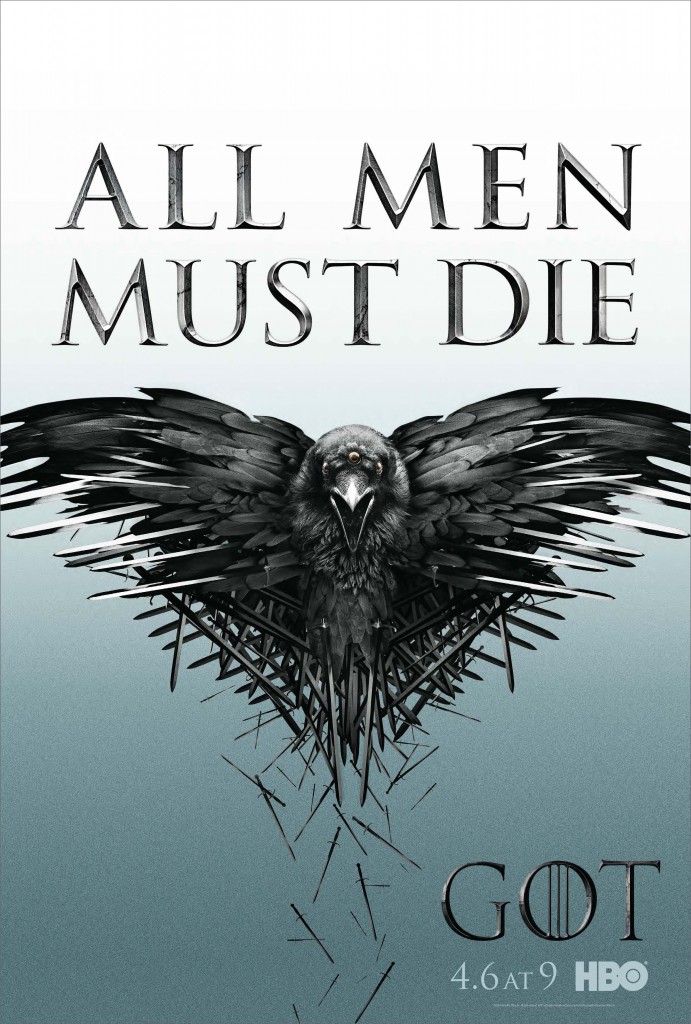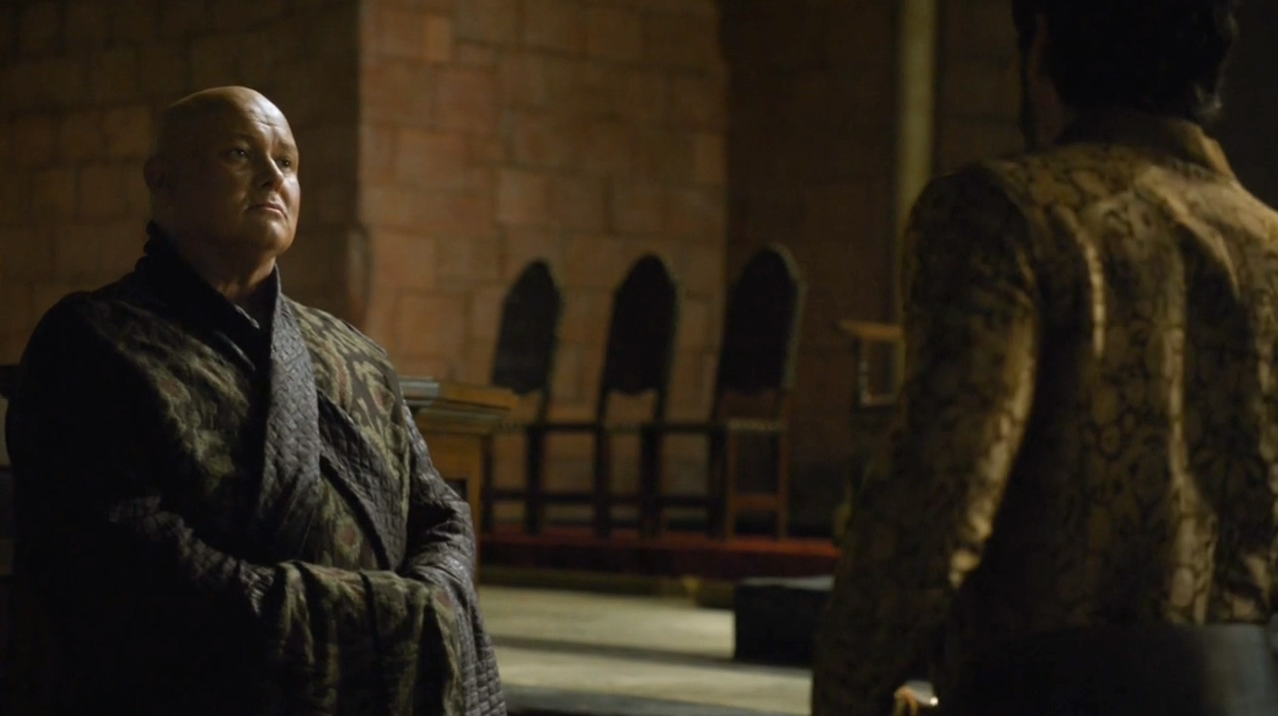HBO’s LGBT History: Game of Thrones (2011-)
 Wednesday, April 20, 2016 at 9:00PM
Wednesday, April 20, 2016 at 9:00PM Manuel is working his way through all the LGBT-themed HBO productions.
 Last week we looked at the legacy of Larry Kramer via the rather hagiographic doc Larry Kramer in Love and Anger. And from the LGBT frontlines to the land of Westeros, we pause this week to talk about Game of Thrones which returns later this weekend. There’s obviously plenty to discuss in the George R.R. Martin fantasy series since sex and sexuality (not to mention its contiguity with violence) has been so central to debates surrounding the show. So I’m opting to focus instead on a minor character to single out perhaps the most underrepresented group of sexual minorities: asexuals.
Last week we looked at the legacy of Larry Kramer via the rather hagiographic doc Larry Kramer in Love and Anger. And from the LGBT frontlines to the land of Westeros, we pause this week to talk about Game of Thrones which returns later this weekend. There’s obviously plenty to discuss in the George R.R. Martin fantasy series since sex and sexuality (not to mention its contiguity with violence) has been so central to debates surrounding the show. So I’m opting to focus instead on a minor character to single out perhaps the most underrepresented group of sexual minorities: asexuals.
When I taught gender and sexuality to college students, one of the things I’d often get asked when dealing with the ever-growing LGBT acronym was to explain all the letters. L, G, B, and T have always been pretty easy to identify (Lesbian, Gay, Bisexual, Trans* and/or any of its variations, including Two-Spirited). It was once we went beyond those that you’d end up really understanding the way such an umbrella acronym encompassed plenty of identities. Q, for example, could stand for “Queer” or “Questioning”; I stands for Intersex while some people would point out that * is necessary given that some people in the community refuse any sort of label (you can read the Wikipedia article on the acronym to see what else often gets lumped in!). A for many stands for “Ally,” a curious category since it seems less a sexual identity than the rest; often I pushed students to also consider A as standing for “Asexual.”

Whether asexuals, who have grown increasingly vocal (if not quite visible) within the mainstream in the past few decades, belong within this broad umbrella group is a discussion in itself, but since we’re exploring the way HBO has tackled various sexual identities, I figured we’d look at the most overt attempt by the network to take on the issue of asexuality. And so we come to Varys (Conleth Hill) on Game of Thrones.
If you’ve read the books and want to talk about key discrepancies that complicate the view of Varys as an Ace, go right ahead, though know that I’m concerning myself with the show (and the season 4 episode, “The Laws of Gods and Men”) alone.
The revelation that Varys is a character we could easily identify as “asexual” (a person who does not experience sexual attraction) happens during a conversation he has with Oberyn (Pedro Pascal):

My paramour Ellaria, she would find you very interesting. You should come to the brothel and meet her. We have some lovely boys on retainer. You did like boys before?

(Shakes his head)

Really? Girls? Hmm. I hope you won't be offended when I say I never would have guessed.

Not at all. But I was never interested in girls, either.
What then?
Nothing.
Everybody is interested in something.
Not me.
When I see what desire does to people, what it's done to this country, I am very glad to have no part in it.
It’s as blunt a description of asexuality as you’re prone to find in mainstream fare, perhaps even a bit didactic (like those scenes in “very special episodes” when peripheral gay characters had to explain their attraction to straight characters and viewers alike). Varys not only explicitly notes that he didn’t feel sexually attracted to young boys or girls, but that he disdains the very nature of desire which he’s glad he’s exempt from. It allows him, he says, to focus on other things—namely, scheming and plotting.
As this very lively discussion thread suggests, the revelation of Varys as an asexual (to the knowing audience; that word is never uttered in the episode) is weighted with all kinds of assumptions and implications. The fact that Varys is a eunuch, for example, poses some vexing questions for some ace activists who see an unnecessary conflation between sexual drive and asexuality being put forth, another reminder that the burden of representation can sometimes upend even the joy of mainstream visibility.
Any Game of Thrones fans who want to weigh in on Varys's depiction and/or the show's broader interest in non-normative sexualities?


Fun Awards Fact: The HBO series has been an awards-juggernaut, an especially surprising one given the oft-discussed bias in awards-giving bodies towards fantasy which Lord of the Rings helped in some way to dispel. This episode alone, for example, won Excellence in Production Design Award at the Art Directors Guild Awards in 2015.
Next Week: We look at the David Oyelowo in Nightingale.



Reader Comments (2)
It pains me that people would think the A stands for ally, but glad you were able to talk about asexuality in this series.
Game of Thrones is one of my favourite shows in spite of a certain predilection towards rape and female nudity. I would never have suspected that Varys's asexuality would be a problem for anyone.
Coneith Hill is charismatic and enigmatic in the role, he plays someone who is less bombastic and always interesting. I always look forward to his scenes with any character, particularly Tyrion.